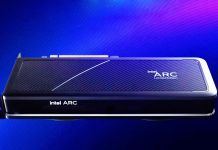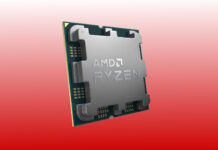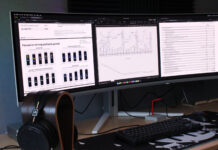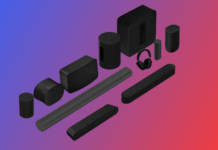Eftersom vi nu
har en utlottning av ett Voodoo 5 5500 AGP på NordicHardware tänkte vi att
det kunde vara intressant att följa upp med en intervju med det folk som
dedikerar sin tid till att utveckla drivrutiner till denna produkt. Som de
flesta vet var det nu ett tag sedan 3Dfx "dog" och samtidigt som
de dog dog även deras kundsupport. För att fylla tomrummet har många tredje
parter gett sig in i leken för att utveckla drivrutiner för 3Dfx kort. Allt
från kommersiella drivrutiner till hobbyistskapelser finns att finna. En
av våra favoriter är 3DHQs drivrutiner.
Men det som vi fann intressant är den stora skaran folk som fortfarande
håller
på och jobbar ideellt för att se till att alla 3Dfx-användare
ska få så
bra stöd som möjligt för sina produkter. Därför
tog vi kontakt med Devin Phillips som är "chef" för 3DHQ
och frågade honom ett par frågor.
På grund av det lite mer vänskapliga språkvalet och de längre textstyckena
har vi denna gång valt att behålla innehåller på engelska. Håll till godo
och lycka till i NHs tävling där ni kan vinna ett Voodoo 5 5500 AGP!
[NH]: Please
introduce yourself and tell the people the basics about what you do.
[3DHQ]:
I’m Devin Phillips, and I basically run the visible side of 3dhq. While I
personally am responsible for, basically, finalizing anything you see coming
from 3dhq, as is the case with almost anything, it’s the stuff that goes on
with those involved behind the scenes that really makes or breaks an organization.
3dhq was built around the original intention of continuing driver support for
3dfx Voodoo products, most specifically Voodoo3 through Voodoo5, with the occasional
release for some earlier or tangent Voodoo product. The only coding I do is
the scripting for the 3dhq installer, the vast majority of our coding
is done by a small group of talented and determined people who do their work
out of kindness for the 3dfx user base.
Originally "3dfx Underground," 3dhq, when it adopted its new identity,
broadened its goals to include more of the PC news, gaming, and hardware/software
community. While our site has been fatiguingly slow in being updated, it’s
more than anything because we’re trying to do so many things all at once. Combined
with the fact that all of us are volunteers, other factors come first, and
with the new year things have been busy elsewhere. I could go on explaining
like this, but I’m sure you get the idea.
[NH]: When did
you first start working on the 3DHQ drivers and when do you think you will
stop updating them?
[3DHQ]:
We
first started updating drivers a long time ago, as 3dfx Underground. It
was late in the year 2001 we realized we had gained the ability to update
drivers, and early to middle 2002 when we made our first beta release.
I don’t know when we’ll stop updating them, but I believe it’s safe to
say our goals include finally completing the original task we began, which
was releasing a completed OpenGL 1.2 ICD. In actuality, by the time all
its bugs get fixed and it gets working, it will probably be a 1.3 ICD (of
course, no promises). Also we’d like to get complete DX8.1 compatibility
completed as well, and hopefully carve quite a bit into DX9 or DX9.1 compatibility
into the D3D portion of our drivers before we stop updating them.
After a while, updates won’t make sense. Though theoretically drivers could
be updated forever to be compliant with the latest standards, there will
come a point at which the fastest Voodoo cards just don’t have the power
to run games that use the newest standards, even with fully working drivers.
The games would run without bugs, but at extremely low speeds that make
gameplay impossible or painful to the eyes. When this time comes, we’ll
have to make a decision to stop updating drivers, but until then, we’re
still going to do what we can for the 3dfx user base.
[NH]: Do any
of you at 3DHQ do any coding of the driver dlls themselves or how would
you explain to our readers what it is more exactly that you do?
[3DHQ]:
We do code driver DLL’s, as well as related files, including all those
files that control the Glide2, Glide3, OpenGL, and D3D API’s. We long ago optimized
our INF settings, thanks no doubt to the myriad of people who before us were
releasing their own optimized kits that only included INF modification. From
their successes and failures and ideas we were able to, along with our own
resources, optimize our INF settings to achieve optimal settings. Our hardware
control program, 3dhq Tools, takes the place of 3dfx Tools as the interface
to hardware settings. It directly controls the hardware, allowing for on-the-fly
overclocking and changing of settings that otherwise would require rebooting.
[NH]: Since
the source code to the D3D part of the drivers never was released how do
you go on about ”updating” the D3D part?
[3DHQ]:
The source code was never officially released, but
we have and use it for all the APIs’ drivers. Though we had our own Glide
source originally, ported from the official Glide source release, we couldn’t
update D3D drivers until we obtained the full source code for the drivers.
For interest and verification, I’ve included a screen shot of some inconsequential
but verifying 3dfx D3D driver source code.
[NH]: Could
you explain the process of making a new driver package to our readers?
What parts do you update, how much time goes into tweaking and how many
bug testers do you have etc.
[3DHQ]:
The process of making a new driver package is difficult the first few times,
then becomes easier once some of the core components are built in the first
few releases. The DLL’s and other driver files are updated independent of each
by programmers, and when finalized betas are completed they are sent to the
testing group for run-throughs of various testing strategies, that include
benchmarks, massive lists of games, and other programs. If enough progress
has been made to warrant a new driver kit to be released, the programmers send
to me a polished-up version of their driver files (information such as version
numbers, etc., added), and I simply put those files into a simple directory
structure I have set up permanently. The newer files replace those from the
last release. If the control program (3dhq Tools) has been changed at all,
I also put the new Tools installer in its place in the directory structure.
The readme and license files are then updated within the directory structure
to reflect changes to the drivers themselves.
At first, the next steps were difficult because they hadn’t been done before.
Now, they are quite simple. Since I’ve already got a working script that
generates the installer from the directory structure of drivers, I simply
run the script, and get the packaged installer ready in a folder.
I then send the driver package back to all the programmers as well as all
the beta testers for final checks, just to make sure everything is running
correctly. We have a pool of about 20-30 beta testers, but not all are
always used for every file or package.
When the kits are found to work, they are renamed and uploaded to the web
site for distribution.
[NH]: Since
some moths back it seems as if the Voodoo cards has had a hard time keeping
up. Many new games simply refuse to work and many needs hacks to even run
etc. When do you expect that you guys simply have to give up?
[3DHQ]:
The Voodoo hardware itself is still capable of running today’s games (though
not as fast as the newer cards from other companies), if it has completely
working drivers. However, as I said before, the time will come when this
isn’t applicable. If games refuse to run, it’s usually because they require
a standard that the currently available drivers from 3dhq don’t yet have
(full DirectX 8.1 compatibility, OpenGL 1.3, etc.). This can be fixed eventually
by driver updates. It will be time to quit when even with fully compatible
drivers, games that require updates to standards cannot be run effectively
or enjoyably with drivers that are compatible with those updated standards.
[NH]: Do you
have the possibility do add basic DX9 compability to your drivers such
as DDI 9 and such? And in general how much effort is put into the 2D/GUI-acceleration
of the drivers?
[3DHQ]:
Yes, we do have the capability to update to DX9 support. However it will
take quite some time. As for 2D/GUI acceleration, we do update this occassionally
but it’s certainly not our main focus. Most accelleration features are already
supported in existing drivers.
[NH]: If we
talk current games, how much more performance do you think that you can
get out of the good old Voodoos? And how much room is there for quality
enhancements?
[3DHQ]:
Performance-wise, a Voodoo5 should be able to run today’s games at
40fps. Drivers themselves can only probably add another 5% to the raw performance
of the cards, but don’t mistake that with games gaining speed from the
eradication of incompatibilities. Games that have driver issues with Voodoo
cards could gain far more performance increases with the removal of performance-decreasing
bugs.
Image quality can still be improved more. Our work-in-progress OpenGL ICD
does in fact have what is an almost completely software-based anisotropic
filtering algorithm, as well as improved FSAA. Also we already have updates
for Glide3 drivers than in Glide3 and OpenGL (which runs through Glide3,
currently) cause the use of 2X FSAA to also enable a higher-sample edge
anti-aliasing, giving 2X FSAA almost the visual quality of 4X FSAA, which
looks better only because of the higher-grade anti-aliasing of textures
within polygons.
[NH]: I just
have to ask: what is Revenge, any hints? (Visit http://www.tdhq.net to
see what I’m curious about.)
[3DHQ]:
Revenge? What Revenge? Oh, that banner on our web site… darn, you saw
it… heh. Unfortunately I can’t give you any hints on what it means or is,
except that you’ll enjoy it when it arrives.
[NH]: When do
you expect your drivers to come out of their beta stage?
[3DHQ]:
As per our original plan, the drivers will lose their "beta" designation
when they include the updated OpenGL ICD. This was supposed to happen far earlier,
but things got a bit mixed around in the process and did not happen as we originally
forsaw. We actually originally thought we’d have OpenGL updates available before
D3D updates, but it’s turned out the other way. We’ve decided that we’ve waited
this long for the OpenGL ICD and to remove the "beta" from the drivers’
release names, that we might as well continue to wait as per our original plan.
NH tackar Devin
Phillipsoch 3DHQ-teamet för att de ställer upp för oss!

















